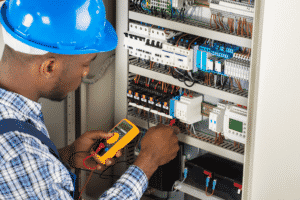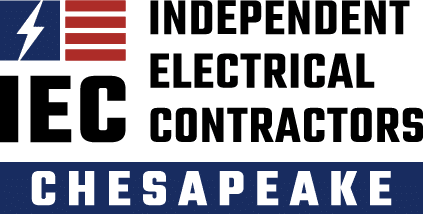By recognizing it’s worth.
The Trades suffer from an image of not being professional, white collar, academic, inclusive, and/or a path to great financial growth.

How is this when we know the opposite is true- they are ALL of these things, and more?
Speaking directly for the electrical trade (but giving a nod to our brothers and sisters in plumbing, HVAC, and other apprenticed construction skills) I can dumb down the reasons to two simple facts:
· One, the trades have done a poor job of telling and promoting their own educational story
· Two, parents and schools have for decades been buying the myth that everyone wants to go to college, should go to college, and can go to college.
Information fixes both problems- for our part, IEC Chesapeake has made it an ongoing quest, through our regular blogs, to not only let the public know what the electrical trade can offer, but also keep you abreast of what chapters like ours are providing to educate and graduate skilled electrical professionals.
The cultural bias is a larger issue- however we certainly see “chinks in the armor”. Modern parents have dealt with recessions and many with heavy student loan burdens themselves. The allure of lending a huge amount of money to a young person with no job, who, when they get a job, will then be saddled with a crippling debt…just doesn’t make sense.
The tide is definitely turning. College enrollments are down. According to the Business Insider, college costs have increased 260% from 1980 to 2014. Around 2011, colleges began to see a slump in enrollment.
From www.collegedata.com:
“Colleges often report a combined tuition and fees figure. According to the College Board, the average cost of tuition and fees for the 2017–2018 school year was $34,740 at privatecolleges, $9,970 for state residents at public colleges, and $25,620 for out-of-state residents attending public universities.”
The presumed value of a college education (above all others) is tarnished. If you have this tremendous outlay, but cannot find a job, let alone a job that begins to hack away at an enormous debt, the perceived value wanes.
Apprenticeships cost a fraction of these figures (closer to the in-state tuition), and the student is employed during the apprenticeship. EMPLOYED and earning. Most of our IECC graduating Journeymen will not have school debt; many work for chapter member employers who will reimburse a student maintaining a certain grade point average.
The electrical Journeyman is a four- year program, which can be followed up with a four- year Masters’ if a student is so inclined. Sound familiar? It should.
It’s a professional, skilled, academic certification; heavy in mathematics and including a lot of business training.
I’m not anti- college. I’m a proud alumnus of the University of Maryland. I know electricians with additional degrees from universities, many in engineering. Our argument is not an “us versus them” argument. That’s a fool’s errand.
We would argue the world is a large place with room for people who want both kinds of education.
Skilled tradespeople have become unicorns. They are needed and desired. They earn great money and have fantastic income potential.
If your student shows the interest and skill set to consider the an electrical apprenticeship- you should have it on the table as an option.
The ROI is stunning.
Grant Shmelzer, Executive Director
IEC Chesapeake/IECC













